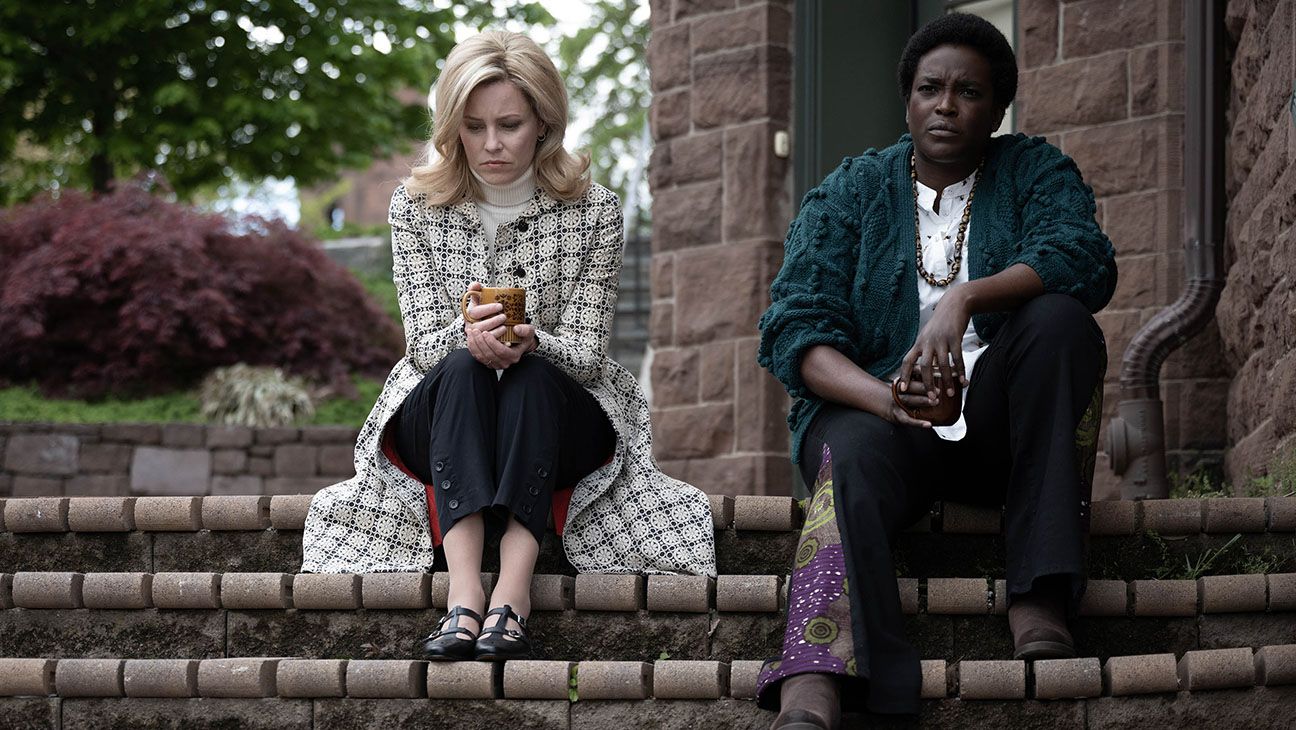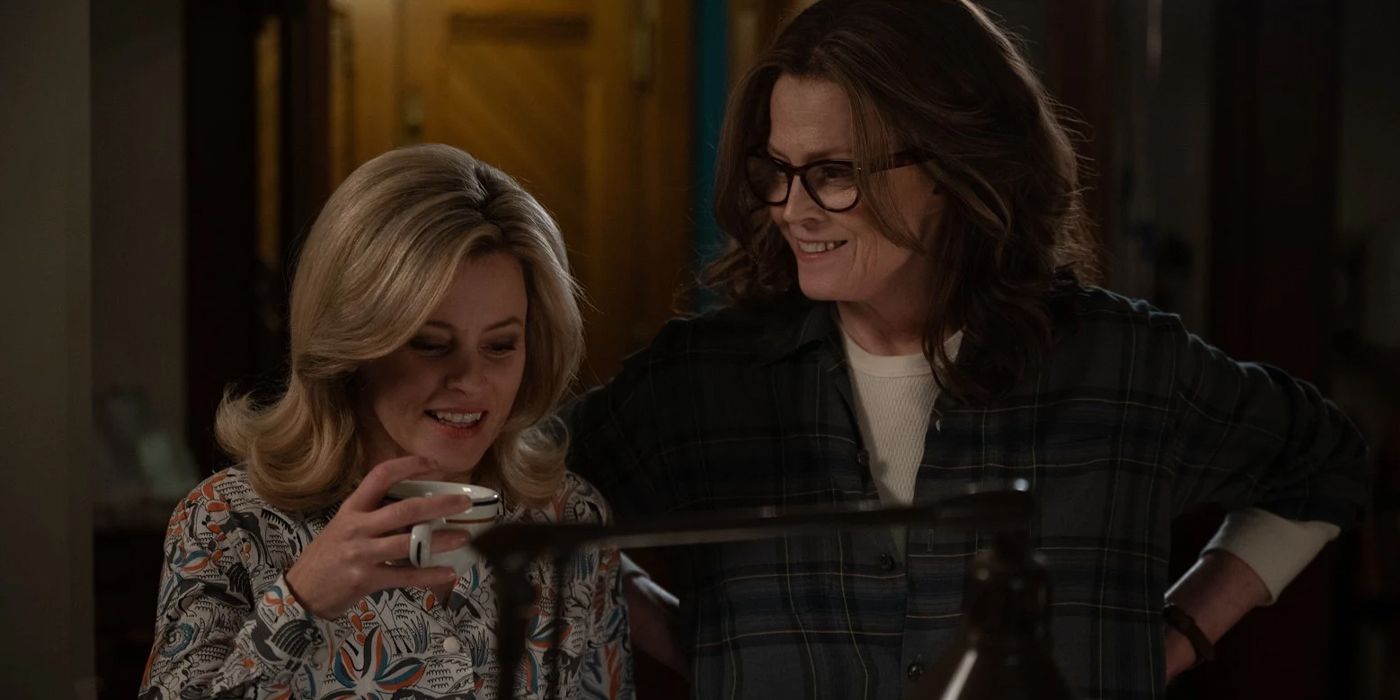This review was originally published as part of our Sundance 2022 coverage.
Call Jane casually opens in a posh Chicago hotel as Joy (Elizabeth Banks) meanders through the lobby, past the live music of the dining room that intentionally clashes with the score. She emerges from the hotel, wide-eyed and naive as she steps into a police line that has formed to intimidate protesters across the street. It’s a strong opening from director Phyllis Nagy, but much like Joy’s aimless wandering in the hotel, Call Jane loses some of its momentum along the way.
Set in 1960s Chicago, in a time just before the landmark Roe v. Wade case, Call Jane is inspired by the true stories of the Jane Collective, an underground service that provided safe abortions for women. Ironically, or perhaps intentionally, Sundance is also premiering Tia Lessin and Emma Pildes’ documentary The Janes this weekend. It makes sense, considering women’s reproductive rights are still a frequent point of contention in modern politics, which makes it all the more frustrating that Call Jane stops short of delivering a final reminder that the fight has not yet been won.
Joy is a picture-perfect housewife with a collection of beautiful dresses and a blonde bubble flip. She is a dedicated mother to her teenage daughter and a doting wife to her lawyer husband Will (Chris Messina). Her perfect little suburban life comes crashing down when she discovers that her second pregnancy might kill her. Together, Will and Joy petition the hospital to provide her with an abortion, but unsurprisingly the middle-aged men that sit around the boardroom only care about the unborn baby. They talk about her as if she isn’t in the room, briskly pointing out that, in theory, she could deliver a healthy baby, but she might die in the process. With that door closed, they attempt to find alternative solutions, but ultimately they’re stuck.
Until Joy discovers a flier that reads “Call Jane.” Enter the Jane Collective, led by the strong-willed ball-buster Virginia (Sigourney Weaver), which helps women from every walk of life terminate their unwanted pregnancies. Despite her husband’s support, Joy opts to lie to him and claim that she had a miscarriage. This plot line works for the most part, but her continued deception and all that it leads to come across with shaky execution. Especially when Will’s later involvement is considered. Her relationships outside the collective are messy and ill-contrived; especially with her friend Lana (Kate Mara) whose only purpose in the narrative is to act as a sounding board for Joy to coyly admit to forgetting to vote and act as a source of temptation for Will, for no clear reason.
Call Jane shies away from some of the more poignant topics within the conversation about women’s reproductive rights. Much of the burden falls onto Gwen’s (Wunmi Mosaku) shoulders, who is the only Black woman in the film, and is only afforded one scene to call out the way the collective is only accessible to upper-middle-class white women. The script dances around the topic of racial inequity, favoring a very WASP-centric narrative. It’s almost as if Hayley Schore and Rohan Sethi’s screenplay wanted to delve into that topic, but they ultimately decided their target audience wouldn’t find it palatable.
The first two acts of Call Jane are engaging and rather nerve-wracking as Joy takes things into her own hands, becoming more and more involved with the collective, but the final act falls apart. Despite the dire situation these women are in—both the women seeking abortions and those women providing them—everything feels very easily won. There is no real central conflict that isn’t easily brushed aside, which ultimately is counterintuitive to the message that the film could have delivered. It’s a tame and tepid approach to a timely topic.
With Phyllis Nagy at the helm, Call Jane had all the potential in the world to be something revolutionary, but it ultimately chose to take the path of least resistance. It leans into a very glossy feel-good “girl power” energy, ensuring that its audience never once feels true discomfort when discussing uncomfortable truths.
Grade: B-
Call Jane is now showing in theaters.



